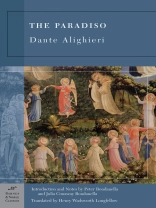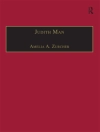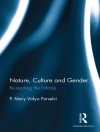The Paradiso, by
Dante Alighieri , is part of the
Barnes & Noble Classics series, which offers quality editions at affordable prices to the student and the general reader, including new scholarship, thoughtful design, and pages of carefully crafted extras. Here are some of the remarkable features of
Barnes & Noble Classics:
- New introductions commissioned from todays top writers and scholars
- Biographies of the authors
- Chronologies of contemporary historical, biographical, and cultural events
- Footnotes and endnotes
- Selective discussions of imitations, parodies, poems, books, plays, paintings, operas, statuary, and films inspired by the work
- Comments by other famous authors
- Study questions to challenge the readers viewpoints and expectations
- Bibliographies for further reading
- Indices & Glossaries, when appropriate
Barnes & Noble Classics pulls together a constellation of influences—biographical, historical, and literary—to enrich each readers understanding of these enduring works.
Dante ’s Paradiso, often thrown into shadow by the first two parts of The Divine Comedy, features one of the most sublime, luminous, and exciting visions in all of literature—that of Heaven itself.
Having climbed the mountain of Purgatory, Dante begins to ascend to the heights of the universe with his beloved Beatrice as guide. They soar through the nine spheres of heaven—the moon, Mercury, Venus, the sun, Mars, Jupiter, Saturn, the stars, and the Prime Mover. Along the way Dante meets people he knew on Earth, who now appear as dazzling jewels, and many others whom he had always wanted to meet, such as St. Thomas Aquinas, Saint Bonaventure, and his great-great-grandfather. Finally, Dante reaches Heaven, where incredibly beautiful scenes—brilliant lights and colors, and flowering gardens— unfold before his eyes, always accompanied by celestial music. Heaven, he learns, is not a place of boring rest, but one of joyful activity, dancing and singing, and endless movement and surprises.
A poem of true heroic fulfillment, Paradiso stands as literature’s greatest hymn to the glory of God.
Peter Bondanella is Distinguished Professor of Comparative Literature and Italian at Indiana University. Julia Conaway Bondanella is Professor of Italian at Indiana University. Both have translated works from Italian and have published extensively on Italian culture and art.








![Cover von Bernadette Andrea: Grace Norton [Gethin] and Frances (Freke) Norton Cover von Bernadette Andrea: Grace Norton [Gethin] and Frances (Freke) Norton](https://static.worldofdigitals.com/thumb_webp/264/9781351932264.webp)



